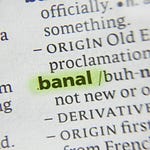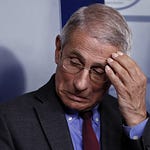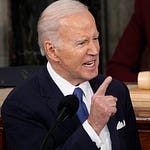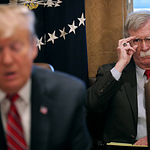Read the full transcript:
Aaron Friedberg
Topic: Containing Chinese Power
Bio: Professor of Politics and International Relations at Princeton
Reading: Getting China Wrong is here
Opening Remarks
Thank you very much for giving me the opportunity to talk about my new book, Getting China Wrong. The book explains the strategy that the United States developed to deal with China after the Cold War described as engagement: economic, societal, scientific, technological cooperation, and so on.
Why did we adopt this strategy? Groups saw opportunities to make money in China strongly favored engagement. As the economic relationship deepened, those interests grew stronger and more influential.
There's also a big ideological component. If you look back at the history of the US over the 20th century, we've tried three times to create a liberal international system of democracies tied together by trade and international law.
After the first world war, Woodrow Wilson attempted to create a league of nations and that failed. At the end of the second world war, the US tried again and it didn't succeed because the Soviet Union wanted no part of it. Instead of creating a global order, we created a partial liberal order that consisted of us and our allies.
At the end of the Cold War, we wanted to create this integrated liberal system again.
At the time of the debates over whether China should enter the World Trade Organization, the belief was that China would become increasingly market-driven in its economic policies. That its economy would come to resemble those of other advanced industrial countries, would move away from state planning and towards a market-driven economy.
And that this engagement would set in motion forces that would lead eventually to Chinese political liberalization. And the most important mechanism there was economic growth. Trade leads to growth. Growth leads to the emergence of a middle class. Middle class has historically been the standard bearer of democratic political reforms. And the expectation was that that would happen eventually in China as well.
So why didn't this work? China has not liberalized economically. And China today is more repressive internally than at any time since the cultural revolution.
Why? The Chinese Communist Party developed a counter strategy to take advantage of what we were offering in engagement while at the same time maintaining their exclusive grip on political power, because that is their principal motivation. It explains almost everything they do domestically and internationally. This belief that it's essential that China continue to be ruled by the Communist Party. And they maintain political control through a mix of coercion and ideological indoctrination. For the first 15 years after the end of the Cold War, they really lay low, they didn't want to provoke the United States. And as they've become more confident of their power, they've become more assertive.














Getting China Wrong